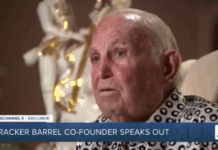Oh, they didn’t just wear matching t‑shirts. They detonated a grenade in the middle of their own spotlight.
Saturday night’s WNBA All‑Star Game was supposed to be a celebration, but instead, every camera caught players strutting onto the court in bold black letters: “Pay Us What You Owe Us.” And just like that, the internet erupted—half in disbelief, half in laughter, and plenty of folks asking a very obvious question: Owe you… what, exactly?
There is no league as tone deaf as the WNBA.
“Pay us what you owe us” shirts when you have to be subsidized is wild.
pic.twitter.com/WuA6x6nr93— Jake “JBOY” Crain (@JakeCrain_) July 20, 2025
Let’s just lay it out. The WNBA is not just operating at a loss; it’s practically living in the NBA’s basement rent‑free. According to financial reports, it’s losing tens of millions a year—$40 million, $50 million, take your pick—while the big brother NBA covers the bills. Yet here they are, demanding more money, standing under a banner that might as well read: “Pay us more for the product you’re not buying.” And people noticed.
Jake Crain didn’t mince words, saying there’s “no league as tone‑deaf as the WNBA.” Think about it: showing up in shirts that scream for more cash while your league survives on subsidies? That’s like asking for a raise from the boss whose wallet you’ve already drained. Bonchie from Red State skewered them with a mock headline that practically wrote itself: “‘We’re losing $50 million a year—let’s double down on being insufferable.’” It stings because it’s true, and the players handed critics that punchline on a silver platter.
WNBA: “No one watches our league, it’s losing $50 million a year, and we just got trolled at the ESPYs. What should we do?”
WNBA Players: “Let’s become even more insufferable.” https://t.co/ytcQlwTvty
— Bonchie (@bonchieredstate) July 20, 2025
Then Jason Howerton twisted the knife with a brutal math lesson. Imagine your boss saying, “Sure, pay you what you’re owed? Funny, you actually owe us $231K each.” You could practically hear keyboards clattering as the jokes rolled in. Social media lit up with reminders that the WNBA’s most bankable star—Caitlin Clark—has been taking cheap shots on the court while single‑handedly driving attendance and merch. The irony was thick enough to cut with a knife.
Amazing opportunity for the WNBA commissioner to be like:
“OK, deal. You lost us $40 million last year, each of you owe us $231K”
— Jason Howerton (@jason_howerton) July 20, 2025
But then came a twist that made the drama even messier. Kelsey Plum, mid‑interview, claimed that the whole slogan stunt was a last‑minute surprise. According to her, none of Clark’s crew was involved in planning it. That little detail is like pouring gasoline on a fire: now fans are wondering if the league’s biggest draw is being alienated by the very players counting on her to boost their paychecks.
KP: “It was a very powerful moment. As players, we didn’t know that that was going to happen. It was a genuine surprise. The t shirt was determined this morning. Not to tattletale: 0 members of Team Clark were very present for that” https://t.co/2fXgaAuqMR pic.twitter.com/awIfnqLjxv
— Oh No He Didn’t (@ohnohedidnt24) July 20, 2025
And yes, there’s Dave Portnoy in the background tossing out a contrarian take—pointing out that Clark’s arrival has sparked a surge in attention and maybe, just maybe, the players could argue for a bigger slice. But here’s the catch. A surge isn’t a profit. A boost isn’t a business model. And a t‑shirt isn’t a solution.
WNBA rant for people with smaller brains than me. pic.twitter.com/biDNBX7JWA
— Dave Portnoy (@stoolpresidente) July 20, 2025







